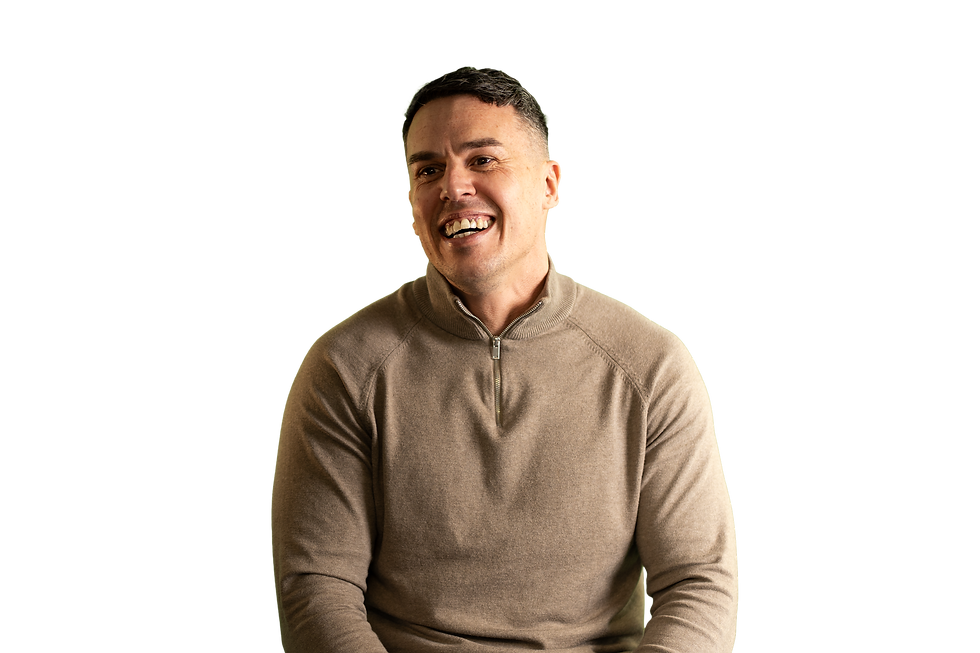
First Time Buyer Mortgages - The First Step to Owning Your Home
Take your first step to owning a home with clear, experienced first-time buyer mortgage advice that simplifies the process.

Understand the mortgage process

Search best rates

Get an agreement in principle

Free, no obligation mortgage advice
Get started here

We’ve Got Your Back, First-Time Buyers
Getting onto the property ladder with your first home mortgage might feel like climbing a mountain—but we’re here to guide you to the top without breaking a sweat.
Everything we do at Delta Mortgages is designed to help first-time buyers secure the best mortgage deals in the easiest, most efficient, and cost-effective way possible.
By working with a mortgage broker, you can get access to mortgage products that aren’t available directly from lenders. With us, you’ll benefit from independent, experienced advice tailored to your needs and trusted support throughout the mortgage process.
Hear from happy people
Three Simple Steps to being Mortgage Ready
Let our lovely mortgage brokers do the heavy lifting, so you can focus on the property you want.

Speak to a Mortgage Broker
Have a free, no obligation call with one of our friendly mortgage advisers

Search the market for the best rate
We will find the best first time buyer mortgage rate for you and your circumstances

Get a Mortgage In Principle
Be mortgage ready to make an offer today
We’ll also handle the heavy lifting—from helping you choose the right mortgage product to finding protection that fits you and your family. Think of us as your personal sherpa, here to carry the load while you enjoy the view of your first home.
Find First Time Buyers Lenders
Access the most competitive mortgage rates today—tailored to your income and circumstances.
Speak with Delta Mortgages today. With access to 100+ lenders and over 14,000 mortgage products, we’ll take the time to understand your unique situation and match you with the best possible mortgage deal. Already have a mortgage in principle? No problem—it’s always worth comparing to ensure you're getting the best rate.











Struggling to get on the property ladder? A frustration shared by many would-be homeowners. And once you’ve found the property of your dreams, there are still so many things to consider. One of the most important parts of the whole process is finding the best mortgage deal.
Searching for the best deal is exhausting, why not have someone else take the weight off your shoulders? Let us compare thousands of mortgages to find the best one for you. We scour through all the well-known lenders, as well as those that aren’t on the radar, to ensure you’ll be confident that you’ve got the right mortgage, and we’ll support you every step of the way.
Getting started as a First Time Buyer

Breaking down mortgages for first time buyers
So, how does a mortgage work? Mortgages can feel like a maze for first-time buyers. So many options, so many details, and no handy “you are here” sign.
But here’s the good news: a first-time buyer mortgage works just like any other mortgage, and we’re here to guide you through every turn.
Below are the steps to securing your first mortgage, broken down into simple, easy-to-follow stages (because we're lovely like that).
What are the steps for a Mortgage Application?
3
Repay the mortgage
With your mortgage approved (woohoo!) and your keys in hand, it’s time to start repayments. Think of this as gradually chipping away at the loan, month by month, with interest included. Most mortgages in the UK are repaid over 25–35 years, so this is a marathon, not a sprint.
2
Secure mortgage
Once you’ve found your dream home, it’s time to make things official. This step involves submitting a full application to the lender. Don’t worry—our amazing mortgage brokers will work with you to ensure everything runs smoothly. The lender will also arrange a valuation to confirm the property’s worth, which is a key part of securing your mortgage.
4
Remortgage once term is up
At the end of your initial term—usually 2, 3, or 5 years—you’ll have the chance to shop around for a better deal. This is where remortgaging comes into play, helping you secure a better rate and potentially reduce your monthly payments.
When your fixed term ends, most lenders automatically move you onto their standard variable rate (SVR), which is typically higher and less predictable. Remortgaging gives you the chance to switch to a new deal that better suits your needs, whether that’s locking in a lower rate or exploring a more flexible product.

1
Mortgage in principle
This is your starting point—the map that gives you a sense of direction. A mortgage in principle (also called an agreement in principle or decision in principle) shows how much a lender could offer based on your income, expenses, deposit, and credit history.
For first-time buyers, it’s like a golden ticket: it tells estate agents you’re serious about buying and shows you’re financially ready to take the plunge. Plus, as a first time byer with no property chain holding you back, you’re in a fantastic position to move quickly.
What do I need for a mortgage application?
Getting everything in order before you apply for your first-time buyer mortgage will make the process much smoother. Here’s what your mortgage adviser will typically ask you to bring along:
-
Proof of Income: Your last three months’ payslips or, if you’re self-employed, your most recent income tax returns.
-
Proof of Identity: A valid passport or driving licence.
Don’t worry—we’ll guide you through every step of the mortgage application process and let you know exactly what’s needed and when. Think of it as packing the essentials for your mortgage journey, with us as your co-pilot.

What are the best ways to make sure you qualify for your first time buyer mortgage?
Buying your first home is an exciting journey, but qualifying for your first-time buyer mortgage requires some preparation. Here are three ways to improve your chances of success:
Your credit score plays a big role in getting the green light for a mortgage. Lenders want to see that you can borrow and repay money reliably, which helps them feel confident that lending you a substantial sum for your first home is a safe bet.
To check your score, start with Experian or Equifax, the most commonly used credit reference agencies. Many offer free trials for the first 30 days—just don’t forget to cancel the subscription if you don’t want to keep it!
If your credit score needs improvement, don’t panic. A few small steps can make a big difference:
-
Register on the electoral roll at your current address.
-
Use a credit card for everyday purchases like groceries or fuel and pay it off in full each month.
-
Build a positive credit history by borrowing responsibly, even if it’s for small amounts.
-
Saving for a deposit can feel like a big challenge, but it’s one of the best ways to show lenders you’re serious about buying your first home.
The size of your deposit is up to you, but the general rule is: the bigger, the better. A larger deposit often means better first-time buyer mortgage deals, lower monthly repayments, and more choice overall.
If saving a substantial deposit feels daunting, don’t worry—there are plenty of government schemes to help first-time buyers, like the Lifetime ISA or shared ownership options. Progress is what counts, and every pound you save brings you closer to owning your home.
Using a friendly mortgage broker* can give you a real advantage, and we specialise in the support first-time buyers need. Our no-obligation advice is tailored to your circumstances, helping you understand how much you can borrow and what to expect.
Ideally, you’d speak to a mortgage adviser before you start house hunting—but we get it, browsing Rightmove is hard to resist! When you’re ready, let’s talk. Together, we’ll turn your vision of owning a home into a reality. Guiding you through this exciting milestone is what we love most.
*We know some incredibly friendly mortgage brokers! They’re lovely—come and meet the team.
Deposits – How They Work, How Much You’ll Need
When it comes to buying your first home, your deposit is the key that opens the door. For first-time buyers, the average deposit is around 15% of the property’s cost, but the minimum you’ll need depends on the mortgage deal and any help you qualify for, like government schemes.
Put simply, the bigger your deposit, the better. A larger deposit makes you less of a risk to lenders, which can increase your chances of approval and lower your monthly repayments.
Lenders use a variety of calculations to determine how much they’ll lend you. As a general guide, you can typically borrow up to 4.5 times your annual salary. But every situation is unique, and our mortgage brokers can help you figure out exactly what’s possible for you.
After a short chat with one of our friendly mortgage advisers, you’ll have a clear picture of how much you can borrow—and what steps to take next. Your deposit is just the start, and we’re here to guide you every step of the way.
What Help Is There for First-Time Buyers?
The good news? There’s plenty of help available for first-time home buyers to make owning your first property more affordable. Here’s a quick overview of the schemes and options designed to support you:
If you’re buying a new build property, this scheme offers a 30% discount on the market value. It’s exclusively available for first-time buyers, making it a fantastic way to reduce costs and secure your first home.
This government-backed scheme allows you to get on the property ladder with just a 5% deposit. It’s perfect for first-time buyers who haven’t been able to save a large deposit, with the government underwriting part of the loan. Properties up to £600,000 are eligible.
This initiative is designed for renters who’ve been paying rent consistently for at least 12 months but haven’t managed to save a deposit. You’ll need a good rental payment history and a reference from your landlord. While there are a few extra hoops to jump through, this option can be a game-changer for those struggling to save.
Need a little extra borrowing power? This type of mortgage lets a relative, often a parent, join you on the mortgage without owning a share of the property. It’s an excellent way to boost your affordability and secure the home you want.
This long-standing scheme allows you to buy a share of a property—typically 50%—while the other share remains owned by a developer or housing association. You’ll pay monthly repayments on the portion you own and rent on the rest. It’s a practical option if a full deposit feels out of reach.
What About an ISA for First-Time Buyers?
The old first-time buyer ISA is no longer available, but its replacement, the Lifetime ISA (LISA), is a fantastic savings tool for first-time buyers.
With a LISA**, you can save up to £4,000 every year, and the government adds a 25% bonus. That’s an extra £1,000 annually, giving you up to £5,000 each year toward your first home.
The LISA is a great way to supercharge your deposit savings. Start as soon as you can, and in just a few years, you could have a substantial sum ready for your first home. However, it’s worth noting that the LISA can only be used for properties priced up to £450,000.
There’s no time like the present to start saving. The sooner you begin, the sooner you’ll be on your way to turning your first-home dreams into a reality.
** Not to be confused with our Lisa. She’s equally lovely and works wonders with home movers too!


Mortgage Affordability Calculator

How much can you borrow? Let’s crunch the numbers.
Before you start house hunting, it helps to know what’s within reach. Our Mortgage Affordability Calculator gives you an estimate of how much you could borrow based on your income and expenses—helping you plan with confidence.

Types of Mortgages for First-Time Home Buyers
Although there are many types of mortgages available, some are a better fit for first-time buyers. This isn’t an exhaustive list, but these are the options we most often recommend to help first-time buyers get started on the property ladder.
1
Fixed Rate Mortgage
The most popular choice for first-time buyers, and for good reason. A fixed rate mortgage keeps your repayments steady for the duration of the fixed term, making it easy to budget without any surprises. Plus, you’re protected from fluctuations in interest rates, so even if the market shifts, your payments remain stable.
It’s like having a warm blanket on a cold day, comforting and predictable, no matter what happens outside.
Fixed terms are typically 2, 3, or 5 years, giving you stability during your first years as a homeowner. If you’re unsure which term is right for you, our experienced mortgage advisers are here to help you decide.
2
Variable Rate Mortgage
A variable rate mortgage is often considered after your initial fixed term ends. Unlike fixed rate mortgages, your interest rate, and your monthly payments, can increase or decrease depending on market conditions.
It’s a bit of a gamble: if interest rates fall, your payments go down, but if rates rise, you’ll need to adjust your budget accordingly. While some first-time buyers start with this option, most prefer the security of a fixed rate mortgage for their first term. Our advice is speak with a mortgage broker to weigh the risks and benefits.
3
Tracker Mortgage
A tracker mortgage is similar to a variable rate mortgage, but your interest rate follows the Bank of England’s base rate rather than being set by your lender. This means your repayments can go up or down depending on changes to the base rate.
This type of mortgage can offer competitive rates, but like variable mortgages, it comes with the potential for rising payments. It’s worth discussing your options with a mortgage broker to see if a tracker mortgage fits your situation.
4
Which Mortgage Is Right for You?
It depends. (We know, that sounds like a cop-out, but it’s honestly true!) The best mortgage for you really depends on your financial circumstances and how comfortable you are with a bit of risk. Fixed rate mortgages are perfect if you’re after stability, while variable and tracker mortgages might suit you if you’re okay with some flexibility in your monthly repayments.
Not sure which mortgage type fits you best? No worries, our experienced mortgage advisers are here to guide you through your options. Together, we’ll find the best mortgage for your first home.
What You Need to Think About Before Applying for a Mortgage
Applying for a mortgage is a big step, and there’s plenty to consider before diving in. To give yourself the best chance of success, you need knowledge, guidance, and a trusted partner to guide you through the process. That’s where Delta Mortgages comes in.
As your dedicated mortgage broker (some say friend), we’re here to make the mortgage process simple and stress-free. You won’t find us bombarding you with jargon or burying you in buzzwords. Instead, we’ll work with you to find the right mortgage and help you take confident steps toward owning your first home.
The mortgage process doesn’t have to feel overwhelming. With Delta Mortgages by your side, you’ll have the support and guidance you need every step of the way.

A-Z Jargon Buster – advice for first time home buyers
The world of mortgages is full of phrases you might not have come across before, or ones that sound familiar but leave you scratching your head.
At Delta Mortgages, we’re all about keeping things simple. Mortgages shouldn’t feel like a puzzle; they should feel clear and straightforward.
We’ve even created a Mortgage Jargon Buster page with definitions for all the key terms you’ll encounter during your mortgage journey.
But to get you started, here are some of the most important ones for first-time buyers.

This land tax has been around since the 1600s and is payable on properties above a certain value. Luckily, first-time buyers have a bit of an advantage here. If your property costs less than £300,000, you won’t need to pay any stamp duty.
For homes priced between £300,001 and £500,000, you’ll pay 5% stamp duty on the portion above £300,000. It’s a great incentive to help first-time buyers like you get on the property ladder without the added financial strain.
Your loan to value, or LTV, is a percentage that shows how much of the property’s value you’re borrowing versus how much you’re putting down as a deposit. For example, if your deposit covers 10% of the property’s value, your LTV is 90%. Lenders tend to prefer lower LTVs because they involve less risk, which is why saving a larger deposit can unlock better mortgage deals.
If you’re unsure how your LTV stacks up, don’t worry, our experienced mortgage brokers can explain everything and help you explore your options.
The completion date is the big day, the moment your new home officially becomes yours (whoo hoo!). It’s when the legal transfer of ownership happens, contracts are finalised, and funds are transferred from your solicitor to the seller’s solicitor. Once everything is confirmed, you’ll collect your keys and step into your new home.
If you’re in a property chain, things can get a little more complicated. Your completion date might depend on other transactions aligning, so timing is everything. Don’t worry—your solicitor will coordinate with everyone involved to ensure the process runs as smoothly as possible. Their job is to handle the logistics, so you can focus on the exciting bit: picturing yourself in your new space.
It’s also worth noting that completion day is when any outstanding fees, such as stamp duty or solicitor costs, will need to be settled. Your solicitor will take care of these payments on your behalf, making sure nothing is overlooked.
This day marks the final milestone in your mortgage journey, and the start of your homeownership adventure. It’s a moment to celebrate, knowing that everything has been checked, double-checked, and handled by the professionals. So, when you get those keys in hand, you can simply focus on enjoying your new home.
Think of a building survey as a health check for your future home. A property surveyor will inspect the house for potential issues, both inside and out, like structural problems or maintenance concerns. This helps you understand the true condition of the property before you commit. It’s a crucial step that gives you peace of mind and can save you from unexpected surprises later.
This refers to the legal process of transferring the ownership of a property from the seller to you. A solicitor or licensed conveyancer will handle this on your behalf, ensuring all legal requirements are met, such as verifying the property’s title and managing contracts. It’s their job to make the process seamless so you can focus on the exciting part, moving in!
When you buy a freehold property, you own the home and the land it’s built on outright. It’s all yours, with no strings attached.
Leasehold ownership, on the other hand, means you own the property itself, but not the land it sits on. Your ownership is limited to a set period defined by the freeholder, and this often comes with extra costs, like ground rent or service charges. Leasehold properties may also have restrictions on what you can and can’t do, for example, you might need permission to make certain changes to the property.
Freehold properties are generally seen as more desirable because they give you full control and fewer ongoing costs. However, if you’re considering a leasehold property, it’s not all bad news, it can still be a great option depending on your circumstances. If you’re unsure which is best for you, our experienced mortgage brokers are here to guide you through the pros and cons.
Additional fees for Buying Your First Home
OK, we’re just going to come out and say it, buying a home can be expensive. And we’re not just talking about the price of the property itself. There are several additional fees to keep in mind when budgeting for your first home.
Here’s what to expect:
As a first-time buyer, you won’t need to pay stamp duty unless your property costs more than £300,000. For properties priced between £300,000 and £500,000, you’ll pay stamp duty at 5% on the portion above £300,000. This exemption is a fantastic way to make first-time buyer mortgages more affordable, helping you take that first step onto the property ladder.
Many first-time buyer mortgage deals come with lender fees, which average around £1,000. The exact amount will depend on the product you choose, and it’s something our experienced mortgage advisers will explain to you in detail as part of the process.
Solicitors are essential for handling the legal side of buying your home, known as the conveyancing process. They’ll ensure contracts are watertight and manage the transfer of ownership. Solicitor fees will vary depending on your property and circumstances, but they’re a key part of securing your first home mortgage.
Lenders will usually carry out a basic valuation survey, but for extra peace of mind, you may want to commission an independent survey. A homebuyer’s report costs around £600 and provides a structural overview, while a full structural survey is more detailed, often costing upwards of £1,000. This step can be vital for first-time buyers, helping you understand the true condition of the property before committing to a first-time buyer mortgage.
Working with a mortgage broker gives you access to experienced advice, exclusive first-time buyer mortgage deals, and support throughout the process. At Delta Mortgages, we offer a free, no-obligation consultation to get started. If you choose to proceed, broker fees typically range from £495 to £995, depending on the complexity of your case and the level of support you need.
We’re completely transparent about our fees—no hidden costs, no surprises. You’ll find all the details laid out on our mortgage broker fees page, so you know exactly what to expect.
Think of us as your personal mortgage sherpa. We’ll carry the heavy load—navigating the market, negotiating with lenders, and handling the paperwork—so you can focus on the exciting part: getting the keys to your first home.
And if you’re curious about how a broker can make a difference, take a look at our Why Use a Mortgage Broker? page.
With Delta Mortgages, you’re never climbing the property ladder alone. We’re here to guide you every step of the way.
Moving day is exciting, but don’t forget to plan for the cost of getting your belongings to your new home. If you’ve got a crew of friends with spare back seats and a willingness to help, you might manage the move yourself at little to no cost. But for larger moves—or if your friends mysteriously vanish when you mention “heavy lifting”—you’ll need to budget for professional movers or a hired van.
Factoring in this added expense ahead of time can save you stress on the day. Whether you’re enlisting mates or calling in the pros, a little planning will go a long way in making your first move as smooth as possible.
Can You Get a First-Time Buyer Mortgage if You’re Self-Employed?
Yes, you absolutely can! Being self-employed doesn’t mean you can’t secure a first-time buyer mortgage, but it does come with a few extra steps. The key challenge is proving your income. Lenders will typically ask for two years’ worth of tax returns or accounts, signed off by an accountant, to show that your income is steady and reliable.
While it might feel like an extra hoop to jump through, it’s worth remembering that lenders are simply trying to mitigate risk. For them, it’s all about ensuring you have a consistent income stream to cover your repayments.
The best way to make the process smooth is to gather your documentation before starting the mortgage process. This includes your tax returns, accounts, and any additional evidence of income stability. Think of it as packing your paperwork suitcase before setting off on your mortgage journey—being prepared can make all the difference.
At Delta Mortgages, we specialise in helping self-employed buyers navigate the mortgage process. Our experienced mortgage brokers will guide you every step of the way, from explaining exactly what’s needed to finding the best first-time buyer mortgage deal for your unique circumstances. You can also explore more tailored advice on our Mortgages for Self-Employed page.
With us by your side, you’ll never feel like you’re climbing the property ladder alone.
Meet the Team That’s Got Your Back
At Delta Mortgages, we combine decades of experience with down-to-earth support that actually helps. No scripts. No waffle. Just lovely mortgage brokers who bring clarity, calm—and a bit of personality—to every step of your journey.
Get to know the people who’ll guide you from start to keys.

Your property could be repossessed if you do not keep up repayments on a mortgage, or any debt secured on it.






